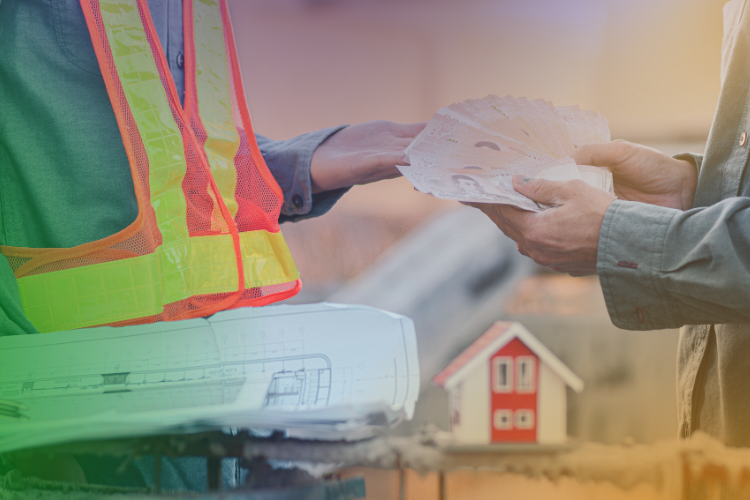We’ve all heard the horror stories about people paying huge sums of money to builders. The builder then disappears, leaving the homeowner out of pocket and their house in ruins. Anyone who is contemplating building work wants to avoid that sort of scenario. Do your homework, get references from the builder and ask around friends and family for their personal recommendations. Once you’ve settled on the builder and agreed what you want him to do, here’s our plan for managing the tricky subject of money.
Get a Contract
It’s really important to set out in a formal way what you’re expecting from your builder, and what your builder expect from you. This doesn’t have to be a lengthy legal document packed with jargon. A one page statement of the work which needs to be done, the timescale for doing it and the price to be charged is sufficient. Get your builder to sign it, you sign it too, and file it away in the hope you’ll never need it.
Don’t Pay Everything Upfront
Paying the whole cost for your building project before work even starts is just asking for trouble. Many builders don’t ask for any money upfront at all. In some cases, it’s reasonable for your builder to ask you to pay for materials but this should be agreed beforehand and you should be clear about what you’re paying for. Some countries have laws forbidding tradesmen to ask for money upfront but not the UK. If you’re being asked for more than 10% of the total price, then you should be asking lot of questions about why.
Staged Payments
If you’ve drawn up a contract, it’s common to build in a calendar of staged payments. This means that before the project starts, you agree with your builder to release money as the project progresses. For example, if you’re having a new extension built you might agree to pay a certain amount when the foundations are complete, pay a bit more once the roof is on, a bit more when the first fit electrics are done, and so on. It’s up to you and the builder to work out how you are going to do this, and what is reasonable to expect. Having a project manager on site can help manage this too.
Contingency Planning
Anyone who has ever had building work done knows that it rarely goes to plan. Often there are unavoidable costs associated with problems which could not have been anticipated at the planning stage. The key to managing your costs is to keep up regular communication with your builder. Make sure they’re explaining why they are incurring additional costs, and give you the option to go ahead or not.
Cash, cheque or bank transfer?
It’s really up to you how you choose to hand the money over. It’s usually easiest to make transfers straight into your builder’s account, and this ensures there’s paper trail too. If you pay by cheque or cash, make sure you get a receipt.
